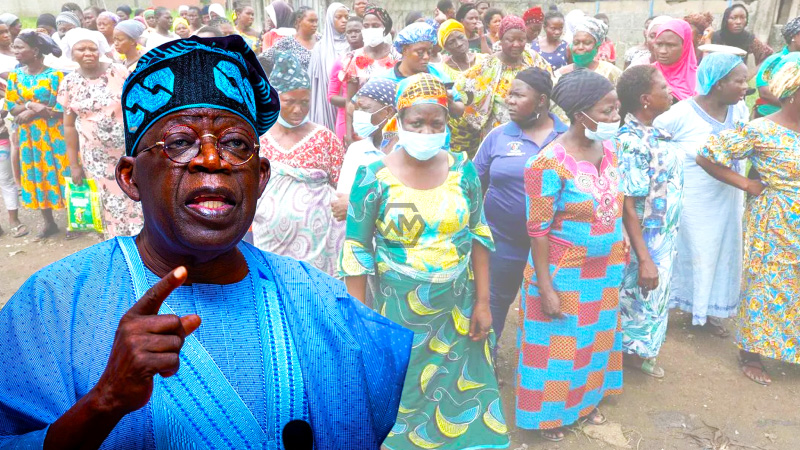- According to a World Bank report, recent fiscal and economic reforms have led to an increase in poverty in Nigeria.
- the number of impoverished people in Nigeria increased from 95 million in 2021 to 100 million in 2022.
- Nigerian inflation is still at record highs, with a YoY of 27.3% in October 2023.
According to a World Bank report, recent fiscal and economic reforms, such as the elimination of the gasoline subsidy and the restructuring of the foreign exchange market rates, have led to an increase in poverty in Nigeria.
The bank applauded the Federal Government for these audacious reforms but pointed out that more Nigerians are now facing hardship due to the severe pressure these reforms have placed on the cost of living. Although the Nigerian Bureau of Statistics (NBS) stated that the number was 82.9 million in 2019 and 85.2 million in 2020, the number of impoverished people in Nigeria increased from 95 million in 2021 to 100 million in 2022.
Poverty line
To finish the reforms and handle their costs, the World Bank‘s Nigeria Development Update (NDP) emphasized the necessity of maintaining the reform momentum. Nigerian inflation is still at record highs, with a YoY of 27.3% in October 2023, partially due to one-time price effects from the elimination of the gasoline subsidy.
Significant swings in the exchange rate in both the official and parallel markets have persisted in the FX market’s volatility as it continues to adjust to the new policy approach.
Although the FX reform has resulted in revenue gains, further clarification is still needed regarding oil revenues, particularly about the financial gains of Nigeria National Petroleum Corporation Limited (NNPCL) from the removal of subsidies, the ongoing deduction of subsidy arrears, and the effect on Federation revenues.
To fully sustain and reap the benefits of the reforms that the government has already started, certain actions were suggested in the most recent NDU report.
These include attaining fiscal consolidation through maintaining savings from the PMS subsidy reform and boosting non-oil revenues, managing inflation and enhancing the stability of the foreign exchange market, and tackling structural growth impediments like removing trade barriers.
Nigeria’s economy is predicted to grow at an average annual rate of 3.5% in 2023–2026 with the macroeconomic stabilization reforms still in place, which is 0.5% percentage points faster than in the case that the reforms had not been put in place.
The World Bank’s stance on power subsidies was challenged by Industry Minister Doris Uzoka-Anite, who contended that since subsidies in the power sector encourage export and production, they are acceptable. To ensure a cost-reflective tariff and to bolster investor confidence, the bank promoted a power regime devoid of subsidies.



